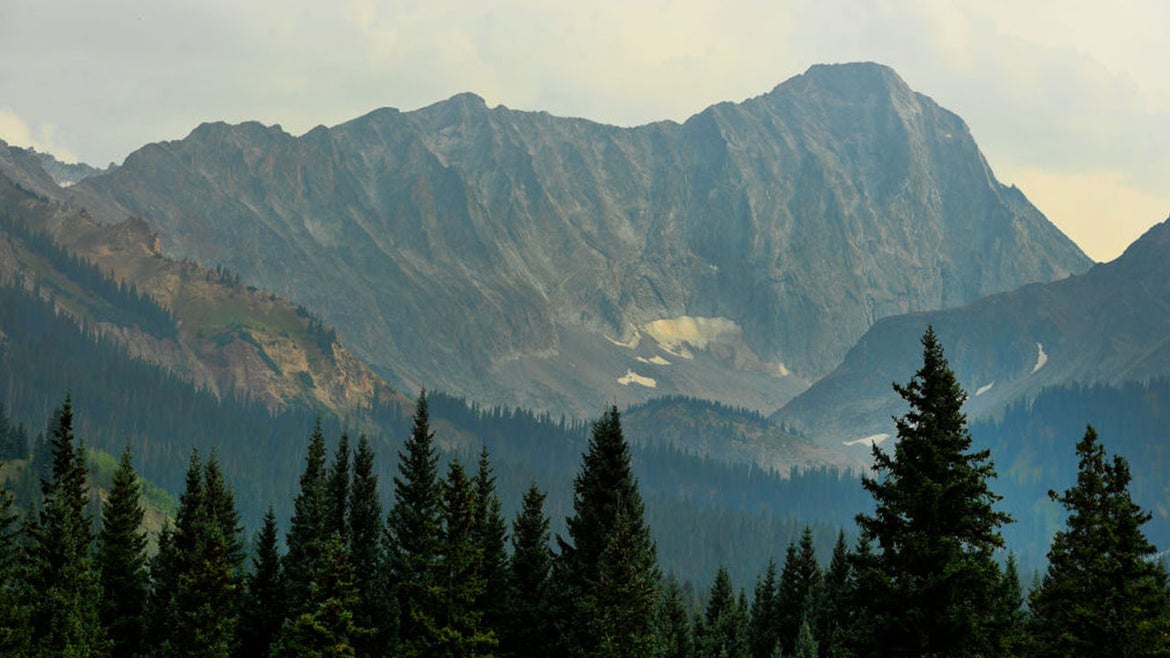The climber, who authorities said was from Denver, plummeted into Pierre Lakes Basin, a rocky area below the mountain, after a rock that she tried to hold onto for support and leverage while climbing gave way, witnesses told authorities.
A woman was killed when she fell while climbing one of the tallest mountains in the country, Capitol Peak in Colorado, officials said.
The climber, who authorities said was from Denver, fell about 900 feet from below the mountain’s summit early Saturday, the Pitkin County Sheriff’s Office said in a statement.
A man, who was not with the woman as she climbed, called the Pitkin County Regional Emergency Dispatch Center just before 8 a.m. to say he and his hiking party witnessing a solo climber fall from a point on Capitol Peak believed to have been between 1,500 and 2,000 feet below the summit.
The woman plummeted into Pierre Lakes Basin, a rocky area below the mountain, after a rock that she tried to hold onto for support and leverage while climbing, which climbers call a “handhold,” gave way, officials said. She fell from the route that connects the knife edge to the Capitol Peak summit, authorities said.
Emergency responders were joined by mountain rescue teams as they launched a mission to recover the woman’s body, taking to the mountain by foot and by helicopter to survey the area. The witness who alerted authorities of her fall was able to provide rescuers with the exact location of her body, which was found by those on foot, authorities said.
Her body was flown out of Pierre Lakes Basin at 2:47 p.m. Her identity is being withheld pending notification of her next of kin, officials said.
And on Sunday, one day after recovering the body of the climber who fell to her death, authorities had to return to Capitol Peak to rescue a man who found himself unable to move or navigate his way off the peak, the sheriff’s office said. That climber managed to call for help, but his telephone connection was poor, and it took about four hours from the time he called authorities to locate him on the mountain.
“Mountain Rescue Aspen (MRA) deployed foot teams to the area. MRA also deployed a reconnaissance flight to attempt to locate the climber, which was not successful. A Blackhawk helicopter from the U.S. Army National Guard also searched the area with MRA,” the sheriff’s office said.
The helicopter located the man about 5:13 p.m. “The climber had been off-route, was in physical distress, dehydrated and out of food, and was not properly equipped for the terrain in which he found himself,” the sheriff’s office said.
That distressed climber was evacuated by helicopter, and all members of the rescue team made it out of the field safety by about 6:30 p.m.
Located near Aspen in the Elk Mountains range of the Rocky Mountains, “Capitol Peak is a mountain with an elevation of 14,137 feet” and “is considered one of Colorado’s most difficult mountains to climb,” the sheriff’s office said in a statement.
Calling the terrain “treacherous,” the sheriff’s office and Mountain Rescue Aspen officials said backcountry enthusiasts should remember “that the loose, rotting terrain can lead to unstable conditions that can cause serious injuries or death.”
Avalanches and landslides are not uncommon, and “extreme exposure” on Capitol Peak poses safety risks as well, officials said.
"We're trying to get people to slow down a little bit," Pitkin County Sheriff's Chief Deputy Parker Lathrop told CBS News Colorado after the woman's death on Saturday. Capitol Peak " should be the crown jewel, and if you're not ready for it — if your gut tells you to stop — the mountain will still be there” when a climber is ready, Lathrop said.
In 2017, five people died trying to reach the summit of Capitol Peak between July and August. Separately, the body of climber Kelly McDermott, who died last year after suffering a fatal fall, was unable to be recovered because of the dangerous conditions those trying to recover his body faced.






